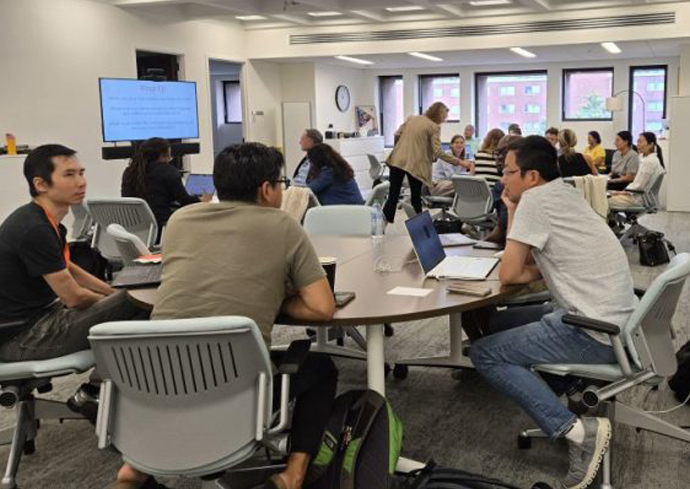Course Redesign Institute Offers Tools, Tactics to Boost Student Outcomes
The Center for Teaching and Learning Excellence (CTLE) recently hosted the Course Redesign Institute (CRI), guiding 20 faculty members in best practices to assess how they teach, changes to make a course more enjoyable and more effective, and high-impact tactics that boost learning outcomes and bolster student engagement.
The three-day institute offered information, resources and methods faculty can use to analyze course content and make revisions to keep pace with changing times, says Jessamyn Neuhaus, CTLE director and professor in the School of Education.
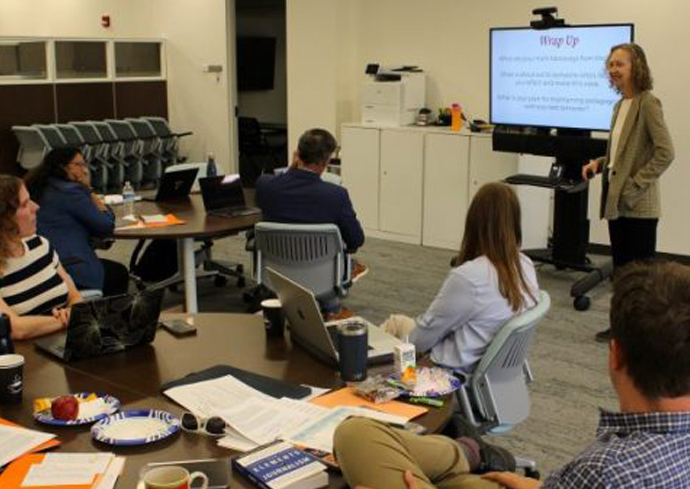
Attendees explored pedagogies and research-based strategies that foster student engagement, including course design and teaching approaches that support student-centered, inclusive classrooms, build community and promote psychological safety.
They examined ways to better align assignments with learning goals and increase student accountability. Discussions emphasized that improvements to student learning and well-being should also benefit faculty teaching and wellness.
The Office of Academic Affairs co-sponsors CRI, and participants who successfully complete the 2025 institute will receive a $1,500 honorarium. Interest in CRI was high, with nearly three times more faculty applicants than available slots, Neuhaus says.
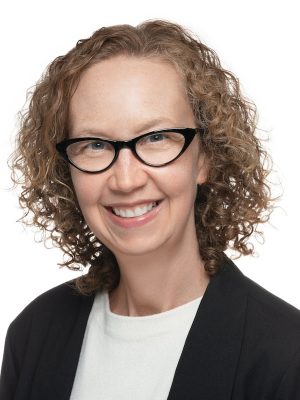
Small Changes, Big Difference
“The attendees recognized that the key to effective teaching is always being able to keep learning about how to help students learn more effectively. Students change, we change, the world changes,” Neuhaus says. “These faculty are seeing how to apply some tweaks, add a little language here, some structure there. It’s not a radical shift or something totally new. Small changes can make a really big difference, especially when the focus is student engagement.”
Time for exchanging information and sharing experiences was built into CRI, a factor Neuhaus believes is critical since “often, the most important pedagogical learning may happen not just through formal content delivery but also from conversations with other people about teaching.”
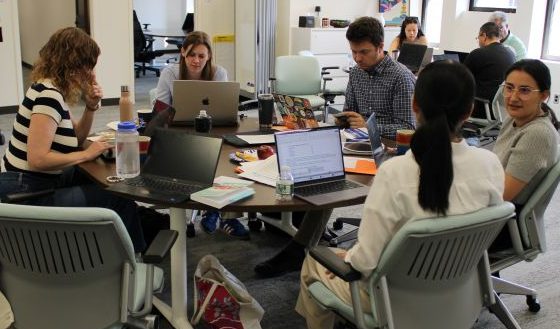
Student Feedback a Wake-Up Call

CRI participant Jean-Daniel Medjo, assistant teaching professor in the College of Engineering and Computer Science, attended to change his teaching methods for the course Electrical Engineering Fundamentals.
The first time he taught the course, “it didn’t go very well,” he says. “Student feedback was a wake-up call for me. They complained the course was exam heavy. In hindsight, basing 96% of the grade on high-stakes exams wasn’t necessarily as fair as I thought it to be. I wanted to see how I could better assess students during the semester so they could earn a portion of the final grade throughout the term in a lower-stakes structure. I now also want to have a more learner-centered and learning-outcomes driven course.”

Janine Nieroda, associate teaching professor of literacy education in the School of Education, found the CRI experience refreshing.
“I want to stay current and innovate with our students, so I am constantly seeking to diversify my skill set and challenge what I know, what I think I know and the ways I do it. The institute was amazing; there was such positive impact from experiencing Jessamyn’s expertise and working collaboratively with associates I don’t normally see or interact with.”
Welcoming, Accessible
Kamala Ramadoss, associate professor of human development and family science in the College of Arts and Sciences, wanted to assure that her course is fully welcoming and accessible to students from varied geographical and learning backgrounds.
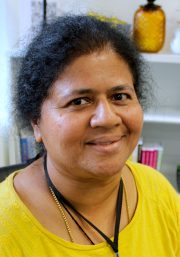
“I came from a very traditional teaching experience,” Ramadoss says. “I don’t want students fearing me or the learning process and I want us all to enjoy it.” She says CRI helped her discover new techniques that she is excited to try, “such as providing handouts or case studies and small-group topic chats, rather than giving a lecture.”
CRI will be held annually in May. Information is available online, including details about Day 1, Day 2 and Day 3 components. Applications for the May 2026 CRI will be available online beginning on March 1, 2026.
CTLE team members are available for guidance year-round and offer a range of services and teaching support. In addition to offering events, learning communities, reading groups and workshops, staff meet one-on-one with small groups and departments and programs for customized consultations. Instructors, faculty, staff and students may also sign up to receive the CTLE email newsletter.
